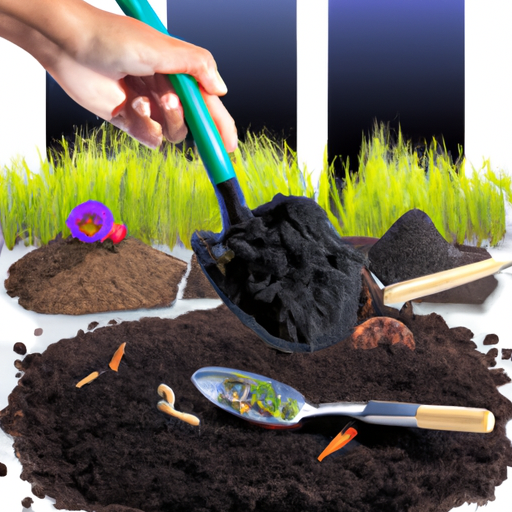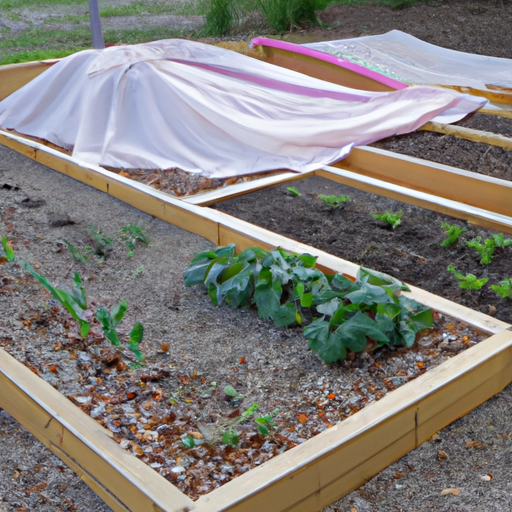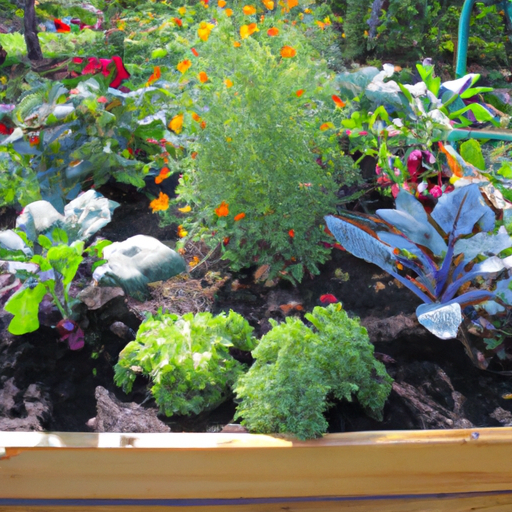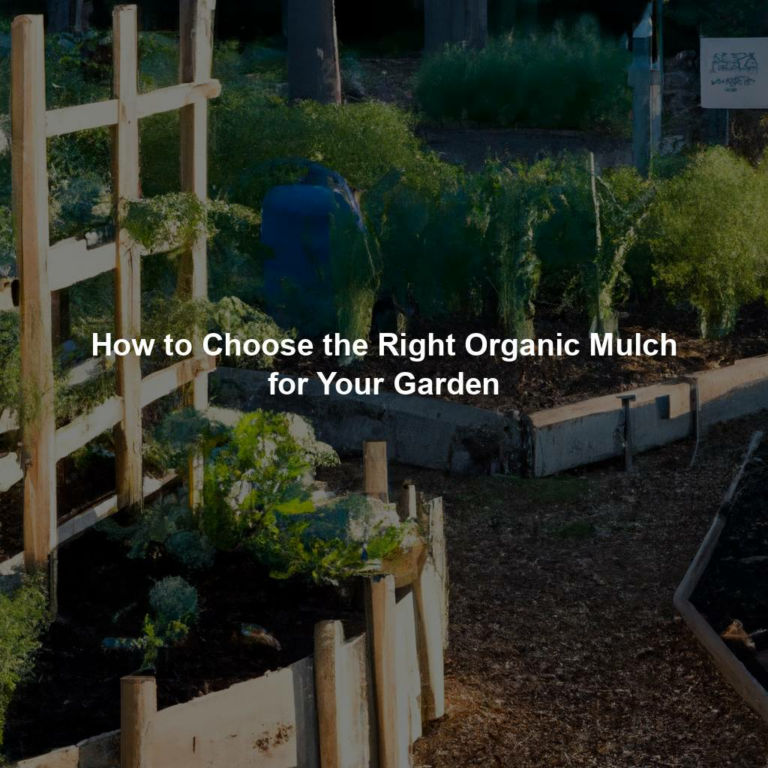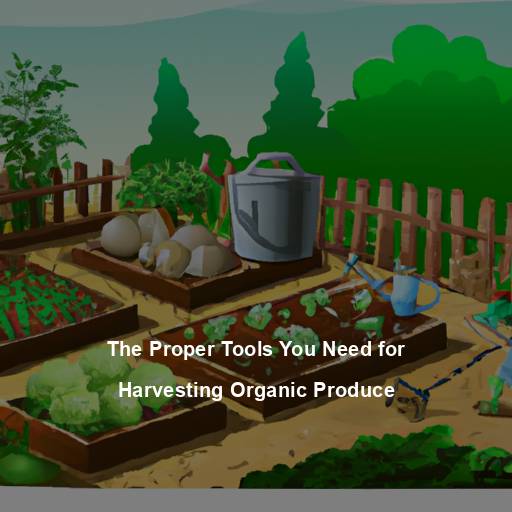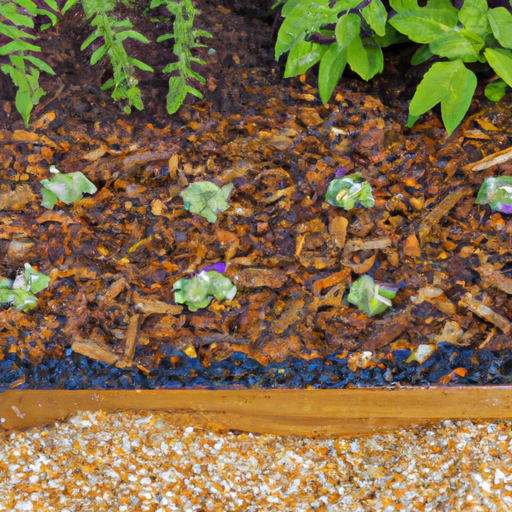Welcome fellow gardeners! If you’re just starting out in the world of organic gardening, then you are in for a treat. There’s nothing quite like growing your own fruits and vegetables using natural methods that benefit both yourself and the environment.
One crucial aspect of successful organic gardening is utilizing soil amendments to enrich and strengthen the soil. Organic soil amendments can consist of various materials such as compost, manure, bone meal, kelp meal, and more. These substances help improve soil quality by adding nutrients, improving water retention capacity, increasing microbial activity, and reducing erosion potential.
Using these amendments properly can result in healthier plants with higher yields while also promoting sustainability and environmental stewardship. So let’s dive into the world of organic soil amendments together- your plants (and the planet) will thank you!
Understanding Soil Health
Welcome to the world of organic farming! As a beginner, it’s important to understand soil health and how sustainable agriculture can benefit your garden.
Soil is not just dirt but a living ecosystem that consists of microorganisms, insects, worms, fungi, and other creatures that play an essential role in plant growth. By using organic soil amendments such as compost, manure, cover crops or green manure, you can provide nutrients and improve soil structure without relying on synthetic chemicals.
Sustainable agriculture practices aim to maintain healthy soils for future generations by reducing erosion, improving water retention and minimizing pollution. Understanding soil health is crucial for successful gardening; we hope this guide will help you get started on your journey towards healthier plants and a more sustainable future.
Types Of Organic Soil Amendments
Now that we have a better understanding of soil health, let’s talk about the different types of organic soil amendments available to us.
The two most common types are compost and fertilizer. Compost is made from decomposed organic matter such as leaves, grass clippings, food waste, and manure. It is rich in nutrients and helps improve soil structure by increasing its ability to hold water and air.
Fertilizer, on the other hand, is designed solely to provide plants with essential nutrients like nitrogen, phosphorus, and potassium.
It’s important to note that not all amendments are created equal. Natural amendments like compost are always preferable to synthetic ones because they introduce beneficial microorganisms into the soil while adding nutrients.
Synthetic fertilizers may be faster-acting but can also cause harm if used improperly or too frequently. When shopping for amendments, look for those certified by reputable organizations like the Organic Materials Review Institute (OMRI).
Incorporating these amendments into your gardening routine will help you achieve healthier plants and more bountiful harvests over time. Experiment with different ratios of compost to fertilizer until you find what works best for your particular garden environment.
Remember that healthy soil equals healthy plants!
Assessing Your Soil Needs
Before you start amending your soil, it’s important to assess its needs.
The first step is conducting a soil analysis to determine the pH level and nutrient content of your soil. You can do this yourself with an at-home testing kit or send a sample to a local lab for more comprehensive results.
Once you know what your soil lacks, you can choose the appropriate organic amendments to improve its health and fertility. It’s essential not to skip this step as adding too much of one nutrient or incorrect adjustments in pH levels can harm plant growth rather than helping them thrive.
Remember that each type of plant has unique requirements, so assessing your soil before planting will save time and money in the long run by providing optimal growing conditions for your plants.
Applying Amendments In Your Garden
Now that you have chosen the right amendments for your organic garden, it’s time to apply them.
First and foremost, we must emphasize the benefits of composting. Compost is a great soil amendment as it helps improve soil structure, provides nutrients to plants, and promotes healthy microbial activity in the soil. When adding compost to your garden beds, be sure to mix it well into the top few inches of soil.
Before applying any other amendments such as bone meal or blood meal, make sure to read their instructions carefully and follow them accordingly. Certain amendments may require different application rates or methods than others, so it’s important to do your research beforehand.
When applying fertilizers or other supplements like kelp meal or rock dust, be mindful not to overdo it. Too much of these products can actually harm your plants rather than help them. It’s always best to err on the side of caution and start with smaller amounts before gradually increasing if necessary.
Incorporating organic matter like leaves or straw into your garden beds also provides numerous benefits such as improving water retention and reducing weed growth. Simply spread a layer of organic matter on top of your soil and let nature take its course.
Remember that amending your soil is an ongoing process and requires regular maintenance. By following these tips and incorporating organic amendments into your gardening routine, you will be well on your way to achieving healthy, vibrant plants without resorting to harmful chemicals or pesticides.
Benefits Of Organic Soil Amendments
Organic soil amendments are essential for maintaining healthy and thriving plants in your garden. By adding organic matter to your soil, you can improve its structure, fertility, and overall health.
The benefits of using these organic soil amendments are numerous, and they include:
– Increased water retention
– Improved nutrient availability
– Enhanced microbial activity
– Reduced erosion
As a Master Gardener, I know that the key to successful gardening is ensuring that you have a strong foundation – and this starts with your soil. That’s why it’s crucial to understand the importance of composting and using natural fertilizers as part of your regular routine.
These methods not only provide essential nutrients to your plants but also help promote sustainable practices in your environment. So if you’re looking to create a vibrant garden filled with lush foliage and bountiful produce, be sure to incorporate organic soil amendments into your gardening strategy!
Frequently Asked Questions
Can Organic Soil Amendments Be Harmful To Plants If Used In Excessive Amounts?
Excessive amounts of organic soil amendments can pose a risk to plants, just as with chemical fertilizers.
This is why it is important to be mindful of the dangers of over-fertilization and regularly test your soil for proper nutrient balance.
As a Master Gardener, I always recommend starting with small amounts of amendments and gradually increasing as needed based on soil test results.
Remember that more is not necessarily better when it comes to plant nutrition, so take care to avoid using too much of any one amendment.
By following these guidelines, you can ensure healthy and thriving plants without risking their well-being through excessive use of organic soil amendments.
What Is The Difference Between Organic And Inorganic Soil Amendments?
What’s the difference between organic and inorganic soil amendments?
Well, for starters, organic amendments are derived from natural sources like animal manure or compost. They provide numerous benefits to your garden, including improving soil structure and promoting healthy microorganisms that help break down nutrients for your plants.
On the other hand, common types of inorganic amendments include things like fertilizer or lime which can be harmful if used excessively. These synthetic products lack the beneficial properties found in organic materials and can actually harm plant growth over time.
As a Master Gardener, it’s important to understand the differences between these two options so you can make informed decisions about what will work best for your specific needs.
Can I Use Organic Soil Amendments In Container Gardening?
Yes, you can definitely use organic soil amendments in container gardening! In fact, using these types of amendments can have numerous benefits for urban gardeners.
Container gardening is a great way to grow your own plants and vegetables even if you don’t have access to a large outdoor space. Organic soil amendments such as compost, peat moss, and worm castings help improve the health of your soil by providing important nutrients and promoting good drainage.
Using organic materials also supports sustainable practices that are better for both the environment and your overall health. So go ahead and give it a try – your container garden will thank you!
How Long Does It Take For Organic Soil Amendments To Improve Soil Health?
Improving soil health is like tending to a garden – it takes patience and care. Composting benefits can be seen in the long-term, as it creates nutrient-rich organic matter that nourishes plants over time.
However, the timeline for nutrient availability varies depending on the type of amendment used. For example, some amendments release nutrients quickly while others take longer to break down.
As a Master Gardener, I recommend monitoring your soil’s progress regularly to determine when additional amendments are necessary. Remember, healthy soil leads to healthy plants and bountiful harvests!
Are There Any Organic Soil Amendments That Can Attract Pests Or Diseases To My Garden?
When it comes to organic soil amendments, many gardeners worry about attracting pests or diseases. However, there are natural methods of pest prevention that can be used in conjunction with the right soil amendments.
It’s important to first test your soil and determine what nutrients it may be lacking before adding any amendments. This will not only help prevent any potential pest problems but also ensure that you’re providing your plants with the necessary nutrients for healthy growth.
Some common natural pest prevention techniques include companion planting, crop rotation, and using beneficial insects like ladybugs or praying mantises.
By taking a holistic approach to gardening and incorporating both soil testing and natural pest prevention methods, you can create a thriving and healthy garden without having to rely on harmful chemicals or pesticides.
Conclusion
As a Master Gardener, I can confidently say that organic soil amendments are essential to maintaining healthy and productive gardens. However, it’s important to note that excessive amounts of any amendment can be harmful to plants.
Organic amendments differ from inorganic ones by providing nutrients slowly over time and improving the structure of the soil. If you’re new to gardening, don’t worry! Using organic soil amendments is easy and effective for container gardening as well.
It may take some time for these amendments to fully improve your soil health, but patience pays off with stronger and more resilient plants. One thing to keep in mind is choosing the right organic amendment for your specific needs since certain ones can attract pests or diseases.
By following this guide, you’ll have all the information necessary to choose the perfect organic amendment for your garden while avoiding potential problems. So go ahead, give your plants what they need – an environmentally friendly boost!
